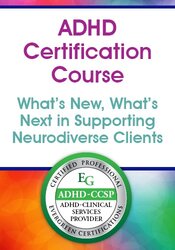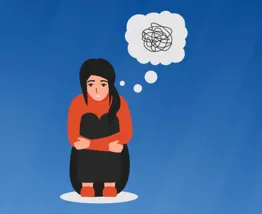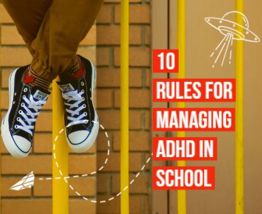How to Reduce Shame and Enhance Self-Worth with ADHD Clients

As therapists, we often encounter ADHD clients not only battling inattention or impulsiveness but also struggling under the heavy weight of shame. Shame that comes from being labeled as “distracted,” “lazy,” or “not trying hard enough.”
But what if we stop treating ADHD solely as a disorder to be managed and start affirming it as a difference to be appreciated?
The Power of Language: From Pathology to Possibility
Language shapes identity. Terms like “symptoms,” “procrastination,” and “off-task behavior” reinforce a deficit-based view of ADHD. It’s time to replace this with affirming, strengths-based language that uplifts clients. Instead of "disorder," what if we highlight divergence, adaptability, or creative cognition? Naming strengths invites clients to see their brains as capable or even brilliant.
Supporting the Whole Person: Top-Down and Bottom-Up Strategies
Helping clients reduce shame involves more than cognitive restructuring. It requires integrated support. That’s why we need to include both top-down (skill-building, executive function coaching, metacognition) and bottom-up strategies (sleep hygiene, nutrition, environmental accommodations). These holistic interventions not only improve functioning but signal to clients: “Your brain deserves to be supported, not fixed.”
As a therapist, you can also encourage clients to experiment with a “Self-Esteem Abacus”—a tangible tool to track and celebrate what’s going well. This practice shifts focus from what’s broken to what’s blooming.
From Grief to Growth: Processing “The Gap”
Clients with ADHD often live in “the gap,” or the space between potential and performance. You have an opportunity to honor the grief that lives here. Grief for missed deadlines, misunderstood behaviors, or being told they weren’t “living up to their potential.”
Acknowledging this grief can be the entry point to healing. With compassion, you can help clients see their coping strategies as meaningful, patterned responses not moral failures.
Strategic Behavioral Inquiry: A Compassionate Curiosity
One of the most affirming tools is Strategic Behavioral Inquiry. Instead of judging behaviors, this approach invites curiosity:
- What was the internal goal of the behavior?
- What emotion was driving it?
- What would success have looked like?
This non-blaming exploration respects the client’s internal world and builds metacognitive insight, which is a key to both growth and self-acceptance.
Reframing ADHD, Rebuilding Self-Worth
At its heart, this work is about shifting the narrative. It takes it from “what’s wrong with me?” to “what does my unique brain need to thrive?”
When we center our ADHD clients’ lived experiences, affirm their skills, and reframe their challenges through a lens of compassion and capability, we help them rewrite the story of their lives from one of struggle to one of strength.

Take your skill set from generalized to specialized with this premier ADHD Certification Course! Get dozens of strategies AND start rethinking your current tactics.





